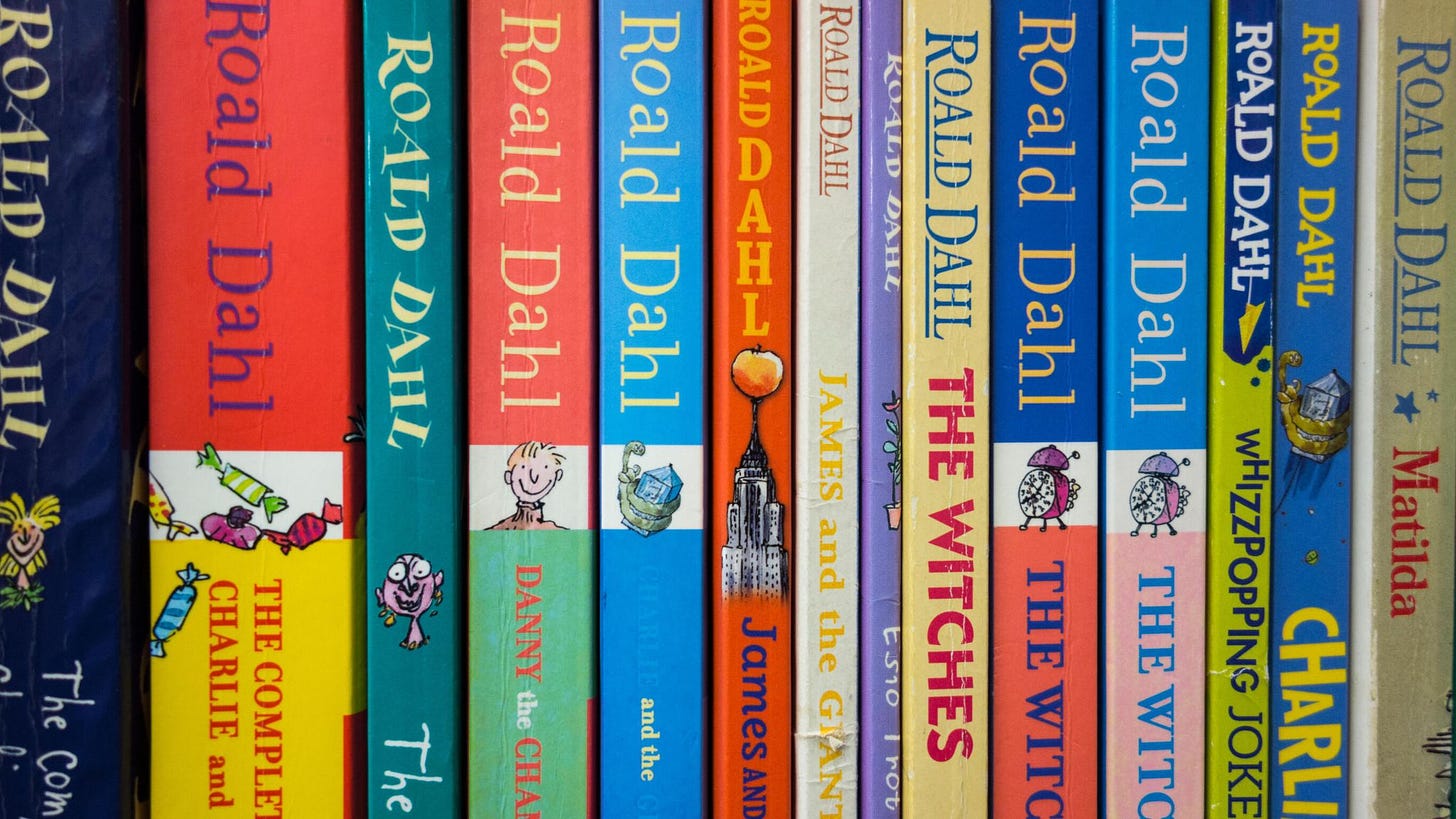Rewriting Roald Dahl Is Not Funny
His humor tempers the harshness of reality, and children need that.
The truth can be hard to take, especially when it reveals qualities or traits about people we would rather not face. However, the harsh reality of truth can be tempered if it is delivered with a bit of humor. That is exactly what Roald Dahl did when he wrote his books for children decades ago. He lived during a tumultuous time in the world and witnessed much of humanity's ugly side firsthand. Rather than cave to anger or cynicism, he laughed and created ordinary characters who overcame evil and had extraordinary adventures. Thanks to “sensitivity readings,” his original words have been censored and scrubbed, and with them, much of the humor they imparted.
The irony of the censorship is that the issues he incorporated into his books have not gone away or even decreased in prevalence. Pretending that is not the case will not change that fact—for example, James’s situation in James And The Giant Peach. Upon the death of his parents when he was four years old, he found himself in the custody of two “selfish and lazy and cruel” custodians who robbed him of the beautiful childhood he had known until then. There is no denying that this is a reality for too many children today. The details may vary, and the abusers may look different, but the scenario is similar.
There is nothing funny about child abuse or the loss of a parent, but there is some satisfaction when those who inflict pain and injury onto an innocent child get “ironed out” by a giant piece of fruit. The fact that it is just the beginning of a marvelous adventure for James is even more gratifying. The diverse and quirky cast of characters accompanying him on his journey make it a tale for the ages. (Troy, Anne, and Phyllis Green. James and the Giant Peach: Roald Dahl. A. Troy and P. Green, 1988.)
In perhaps one of his most well-known books, Charlie And The Chocolate Factory, Roald Dahl gives us a glimpse into the lives of children whose parents succumb to lazy overindulgence rather than loving discipline. Augustus Gloop is “a big fat boy” because his parents never taught him moderation and self-control or made him do physical activity. Veruca Salt is declared “a bad nut” because she has never been told no and has learned how to get her way if anyone tries to deny her. Dahl also illustrates how hardship can build strength of character and resilience in children when surrounded by loving adults who nurture them. Charlie doesn’t just find the “golden ticket”; he holds the ticket to a happy life. (Charlie and the Chocolate Factory. Penguin, 1985.)
While these and other stories by Roald Dahl contain rich life lessons and examples of objectionable as well as desirable character traits, they are also just funny tales about children that stretch the imagination and spark creativity. The belly laughs and giggles I have heard from a classroom full of students or my own children snuggled on the couch reading one of his books on a gray, rainy day are priceless. His books teach them not to take themselves or life so seriously that they miss the joy and laughter in it.
Television, movies, and social media expose children to far too much violence, nastiness, darkness, and vulgarity. Their innocence is under attack at every turn. Roald Dahl’s books should be the least of the concern for the “sensitivity readers.” When drag queens, dildos, and explicit cartoon drawings of sexual acts are acceptable in children’s books, but words such as “ugly” and “fat” are removed because they “might be upsetting,” we should pause and consider who is deciding what is best for our children and if they truly have a good grasp on that concept.
Scrutiny and discernment about what children read are wise. Unnecessarily censoring or scrubbing words, concepts, or terms that are harsh realities for adults but not vulgar, obscene, or crude is wrong. Our children are bound to face some tough situations, difficult people, and seemingly insurmountable obstacles in their lifetime. One of the greatest gifts we can give them is the ability to laugh about them, face them with courage, and imagine solutions. In their original version, books like Roald Dahl’s illustrate how to do that. With that in mind, I recently purchased another set of every one of his books published before 2022. You should too.




